'Doctor Who': 12 For Twelve
What are the best stories from Peter Capaldi's time on 'Doctor Who'?

Peter Capaldi's time on the BBC's Doctor Who has ended. This past Christmas he regenerated into Jodie Whittaker's Thirteenth Doctor who will be making her debut this October per announcements made at the BBC Worldwide Showcase in February. While we wait for her debut, now seems an opportune moment to look back over the highlights of Capaldi's time in the TARDIS. A top twelve for the Twelfth Doctor as it were...(Be warned though: There might be spoilers.)
12. "The Girl Who Died/The Woman Who Lived"

Coming from Capaldi's second season in the role, this two-parter introduces the character of Ashildr (played by Game of Thrones actress Maisie Williams) to the series. The first episode was written by Jamie Mathieson and Steven Moffat, and is set in Viking times where Ashildr's Viking village finds itself under siege by a group of extraterrestrial warriors, while the second episode written by Catherine Tregenna takes the characters into the seventeenth century. That first episode is perhaps most notable for the sequencer when Capaldi's Doctor comes to realize why his face looks so familiar (tying into the actor's appearance in the David Tennant era episode The Fires Of Pompeii) in one of the defining moments of his era. Elsewhere, Wiliams' performance in both episodes is solid but it's in this second episode she shines as the price of her immortality becomes apparent.
11. 'The Magician's Apprentice/The Witch's Familiar'

The opening story from that same season is an epic tale that takes in a large amount of the show's lore. Not only is virtually every kind of Dalek ever seen on screen featured but we also have the return of their creator Davros. Except, as the story reveals, he and the Doctor have an even longer history together than either previously realized. Add on Clara's interactions with Missy along with the confrontation scenes between the Doctor and Davros, and the result is an intriguing tale that explores some of the show's most basic mythology. Not to mention the cliffhanger for the first episode featuring the Doctor apparently threatening the young Davros with a Dalek gun ranks among the best from the show's 21st Century run.
10. 'The Husbands Of River Song'
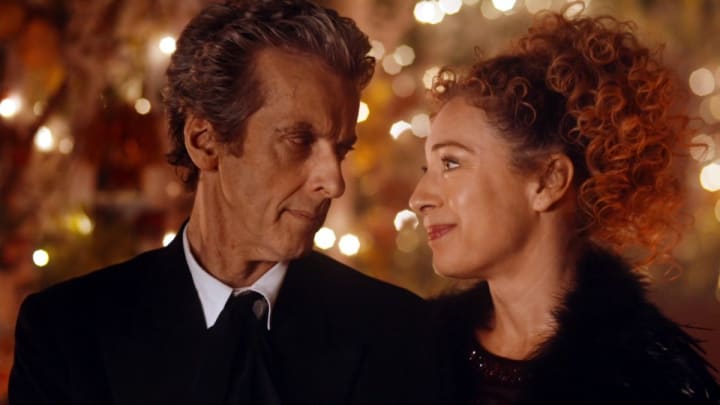
Alex Kingston's River Song was introduced in David Tennant's last season and became a mainstay of the Matt Smith era, living her life out of sync with the Time Lord. Perhaps then it was only a matter of time before perhaps showrunner Steven Moffat's most famous character appeared alongside Capaldi's Doctor. The result was the 2015 Christmas special which brought the two together with a neat twist: River doesn't realize who the Doctor is and is married to someone else! Shenanigans ensue with a lot of laughter along the way. Right until the very end where Moffat ties the bow on top of the River Song storyline beautifully.
9. The Pyramid At The End Of The World

The middle episode of the Monk's Trilogy that dominated the middle of Capaldi's last season is a compelling bit of political allegory written by Peter Harness and Moffat. The Monks arrive on Earth in an impossibly ancient pyramid that appears in a war zone overnight with the message that humanity and all life on Earth will face certain destruction unless they are given consent to help. Only the Monks' demand for consent can only accept it done for what they deem to be the "right" reasons. The episode then becomes a struggle as humanity's representatives (the UN Secretary-General representing politicians, military leaders from the three biggest countries on the planet, and companion Bill giving representation to the public at large) must decide what to do with the Doctor doing his best to help. Harness and Moffat create a metaphor for science fiction for how we have gotten ourselves into our current political situations which makes the cliffhanger ending all the more appropriate.
8. 'Lie of the Land'
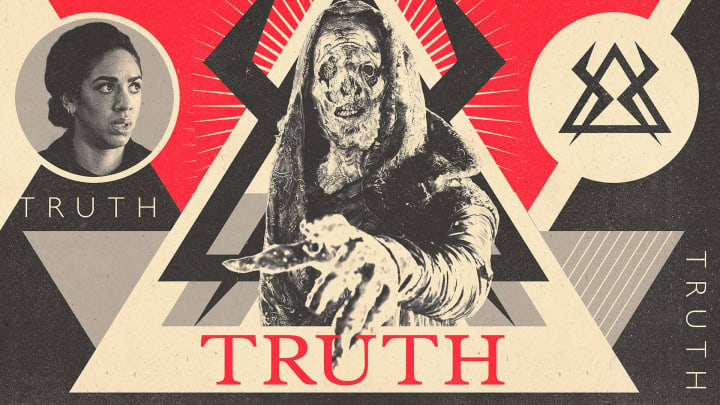
The concluding episode of the Monk's Trilogy (written by Toby Whithouse) finds the Earth is occupied, the thought police out on patrol, and the line from Orwell's most famous novel is brought to life: “Who controls the past controls the future. Who controls the present controls the past.” If the previous episode showed how we could get ourselves into a mess of choosing potential tyranny with the best of intentions, this episode asks how we go about fixing it. The result is one of the bleakest, most fascinating, and well-directed episodes of Doctor Who in recent memory that acts as a satisfying conclusion to the trilogy as well as a solid episode in its own right.
7. 'Extremis'

The opening episode of the Monk's Trilogy is an interesting piece of work in its own right. The Doctor, having been left blind by the events of the previous episode Oxygen, is called upon by the Vatican to look into the mysterious book in its archives known as the Veritas which has led to a rash of suicides, only for him to have to hide his blindness from friend and foe alike. Yet Moffat manages to wrong-foot the viewer almost from the start by raising the stakes and changing expectations right down to the reveal that this isn't quite our TARDIS crew and not the Who universe as we know it. Add on the creepiness of the Monks and some atmospheric direction and you get a solid opening to the trilogy.
6. 'Empress Of Mars'
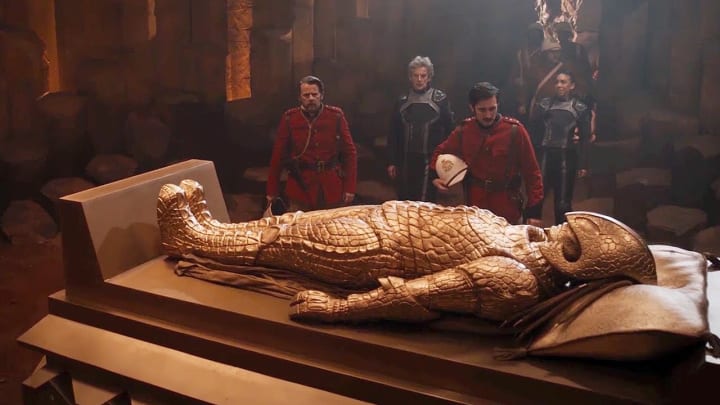
Written by Mark Gatiss, this Series 10 episode sends the TARDIS crew to Victorian Mars after NASA discovers a message in English buried for more than a century under the Martian ice cap. There they find a cavern with an Earth-like atmosphere and a group of soldiers from Her Majesty Queen Victoria's army being aided by an Ice Warrior they have nicknamed Friday. The episode wears its influences on its sleeves from Victorian British soldiers on Mars bringing to mind the steampunk role-playing game Space: 1889, elements of various Mummy films, and the classic 1964 film Zulu. The Ice Warriors too are well presented as no longer the lumbering figures you can easily out-run as they were in the 1960s but walking tanks that can overwhelm you with barely a moment's notice. If you're looking for a solid 40 odd minutes of Doctor Who, one could do a lot worse than watch Empress Of Mars.
Picking up on the Zygon/Human treaty that was first mentioned in 2013's The Day of The Doctor, this two-parter by the aforementioned team of Harness and Moffat uses the shapeshifting Zygons (who first appeared alongside Tom Baker's Doctor more than four decades before) to explore the questions facing a society where you can't tell friend from foe and what do you do when a small radical group stands up and threatens you from within as a group of Zygons (led by one who has taken on Clara’s form) tries to start a war between them and humanity. Yet the episode is perhaps best remembered for the speech Capaldi's Doctor delivers to both sides as he begs them and us the viewers to look at our world, to think before we act, and not to demonize our foes to the point of dehumanizing ourselves. It’s a message relevant to our age and one that will likely continue to be so in the years ahead.
4. 'Mummy on the Orient Express'
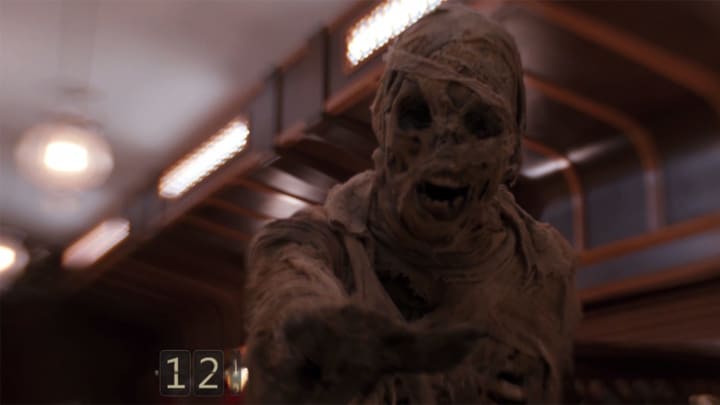
Capaldi's first season as the Twelfth Doctor has come to be regarded as a mixed bag, which is a fair assessment. That being said, the stand out from Series 8 was Jamie Matheson's Mummy On The Orient Express. Set on a pastiche 1920s space train modeled on the famous train, the Doctor and Clara find themselves investigating what seems to be a series of odd deaths on-board related to the mysterious sarcophagus in the train's hold. It's classic Who set-up and Capaldi's Doctor comes into his own here while the episode also nicely sets up the relationship between his Doctor and Jenna Coleman's Clara for the rest of the season.
3. 'World Enough and Time/The Doctor Falls'

The penultimate story of the Capaldi era is another epic that is a quintessential piece of Doctor Who. For starters, it's a meshing together of three different eras of the TV series: the Capaldi era TARDIS crew, the return of John Simm's Master from the Tennant era, and the Cybermen as they first appeared in their 1966 debut.World Enough And Time/The Doctor Falls is that rare story that takes those elements from all across the show's long history and puts them together into a solidly entertaining package and not just for proverbial “fan service” but also telling a genuinely compelling story along the way.
2. 'Twice Upon A Time'
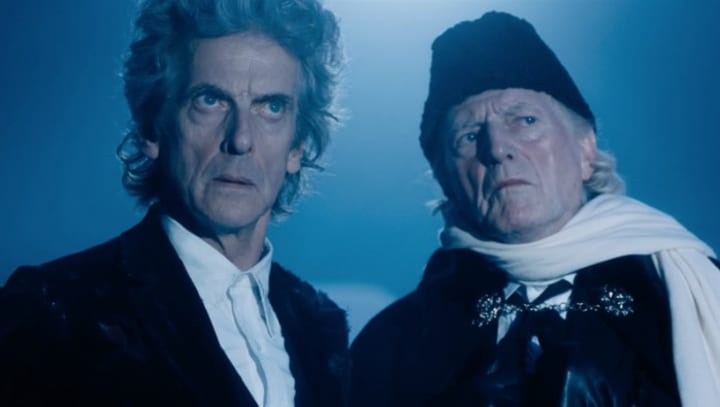
Picking up both from the Series Ten finale and in-between scenes in the First Doctor story The Tenth Planet, Capaldi's final episode finds the two regenerating Doctor's dealing with moments of frozen time and a group of glass-like creatures snatching people out of time at the moment of their deaths. Along the way, the pair-of-Docs encounter a First World War British army captain (played by Mark Gatiss) and former companion Bill Potts. Though the plot of the Twelfth Doctor's last Christmas is relatively straightforward, it packs an emotional punch with some of the best moments being the two Doctors together from very different ends of their lives looking at each other as two old men raging against the dying of the light. Yet the end of the special is also a life-affirming one which makes this both a look back and a look ahead with nostalgia on one hand and hope on the other.
Coming at the top of the list is the penultimate episode of Series 9 which acts as a journey in many ways. It is a journey for the Doctor as he faces his own personal hell, trapped in what appears to be a castle as he's pursued by a faceless enemy, trying to keep his morale up against a foe that never tires and never stops, which Capaldi plays to the hilt in what is effectively a one-man show. It's a journey for viewers as well into the heart, mind, and even soul of a character we've been watching for years at least, if not decades, which reveals what it's like to be the man who refuses to give up or give in. For all of that and more, Heaven Sent is not only the best episode of the Capaldi era but may also rank as one of the strongest and most experimental episodes the show has ever produced.
About the Creator
Matthew Kresal
Matthew Kresal was born and raised in North Alabama though he never developed a Southern accent. His essays have been featured in numerous books and his first novel Our Man on the Hill was published by Sea Lion Press in 2021.


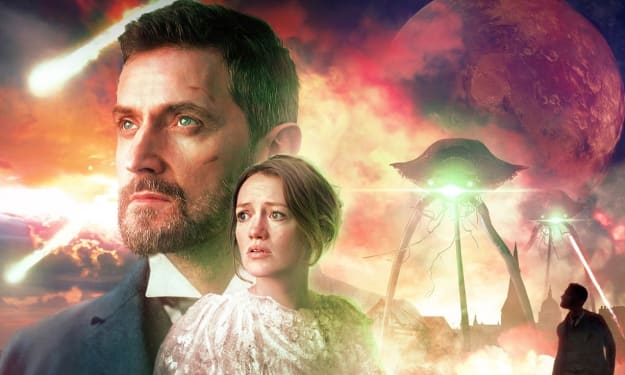



Comments
There are no comments for this story
Be the first to respond and start the conversation.